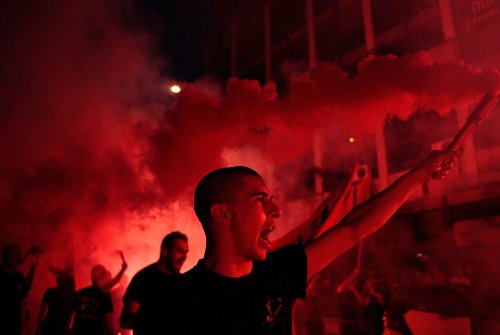Belgium (Brussels Morning Newspaper), “Is Europe cresting a wave or just beginning to ride it?” This is the question echoing through the corridors of Brussels, sparked by the PVV’s startling triumph in the Dutch elections. The outcome, seen as a watershed moment, is not an isolated event but a continuation of a trend where far-right parties are increasingly shaping Europe’s political landscape. The magnitude of the PVV’s victory in the Netherlands, however, is unprecedented, stirring up questions about the future trajectory of Europe, particularly with the European elections on the horizon. What does this mean for the Dutch stance on key issues like support for Ukraine?
In recent years, the Netherlands, under the leadership of Mark Rutte, has taken a pro-European, constructive approach in Brussels, making the country an influential player in European politics. The potential ascendancy of Geert Wilders to the prime minister’s office raises questions about the future direction of the Netherlands. Wilders, often described by insiders as the “EU’s biggest nightmare,” could herald significant policy shifts in areas like climate policy, European finances, and migration. His ambition for a “Nexit” and the palpable change in tone and policy from The Hague seems to signal a new chapter.
The European Commission, traditionally reticent in reacting to election outcomes, emphasized the Netherlands’ role as a “founder and strong member of the European Union,” underscoring its expectation of continued Dutch participation in the EU. Notably, Wilders’ victory was immediately hailed by his far-right peers across Europe. Marine Le Pen, Tom van Grieken, and Viktor Orbán were among those celebrating, viewing this as a strengthening of their collective stance on national identity and signaling a change in the European political winds.
Yet, the picture across Europe is nuanced. There’s a discernible rise in right-wing radicalism, with significant victories in countries like Italy, Sweden, and Finland. However, these parties haven’t achieved the dominance that the PVV now holds in the Netherlands. Contrastingly, in Poland and Spain, right-wing populist parties have faced setbacks. This mixed landscape leads some in Brussels to question the inevitability of a far-right surge across Europe.
The governance styles of right-wing leaders also vary. While Italy’s Giorgia Meloni has shown a more reasonable and constructive approach in European matters, Hungary’s Orbán remains a thorn in the side of Brussels. Despite the frictions, EU diplomats often point out that solutions are usually found, partly because even the most rebellious members, like Orbán, rely heavily on EU funding.
However, the cumulative effect of right-leaning governments is reshaping Europe’s priorities. There’s a noticeable dip in enthusiasm for ambitious climate initiatives and a growing clamor for tougher migration policies. Yet, as the war in Ukraine rages on, there’s an emerging fear in Brussels that these parties might turn against supporting Ukraine.
Wilders, notably, has not displayed pro-Russian tendencies, but his platform does advocate for an end to support for Ukraine and blocking EU expansion. With the Netherlands previously supporting Ukraine’s EU aspirations and aid, the question now is how the PVV’s electoral success might alter this stance. Looking ahead, all eyes are on the European elections next June. The 2019 elections saw a limited surge of the radical right, but with the PVV’s significant victory in the Netherlands, there’s speculation about the potential scale of their success in the upcoming elections. As Brussels braces for these developments, the question remains: How high will the far-right wave rise in Europe?
Opinions expressed in the op-ed section are solely those of the individual author and do not represent the official stance of our newspaper. We believe in providing a platform for a wide range of voices and perspectives, even those that may challenge or differ from our own. As always, we remain committed to providing our readers with high-quality, fair, and balanced journalism. Thank you for your continued support.Sincerely, The Brussels Morning Team




